The Language of Bernese Mountain Dogs
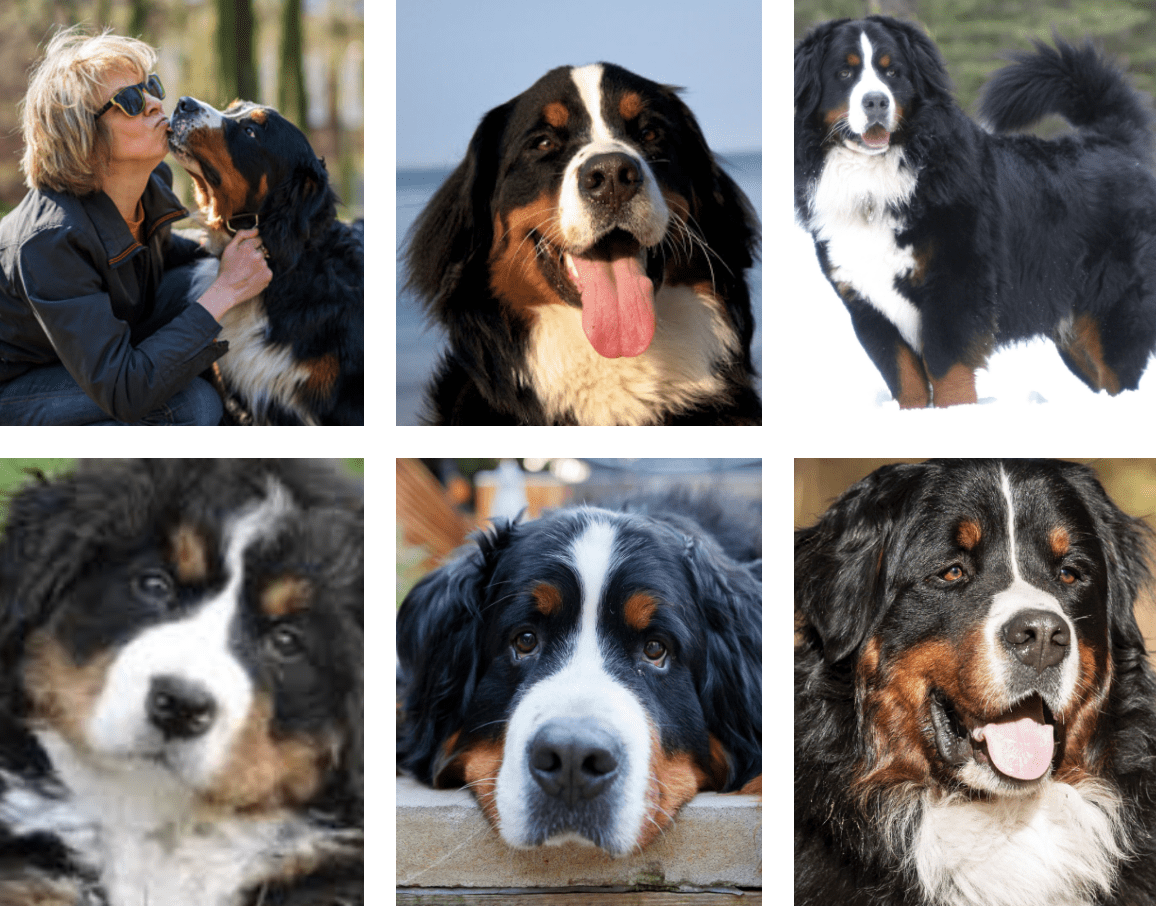
The Language of Bernese Mountain Dogs – Of all the amazing attributes a dog has, the ability to communicate may be the most impressive. Dogs communicate with us all day long, and whether we know it or not, we’re talking right back to them through a variety of verbal and nonverbal cues.
In fact, a recent study concluded that there are 19 different signals that dogs use to communicate with us. These signals are referred to as “referential signaling” which for example, is the way babies communicate with their parents. It’s also the way great apes communicate with each other. Referential signaling is rare among non-primates.
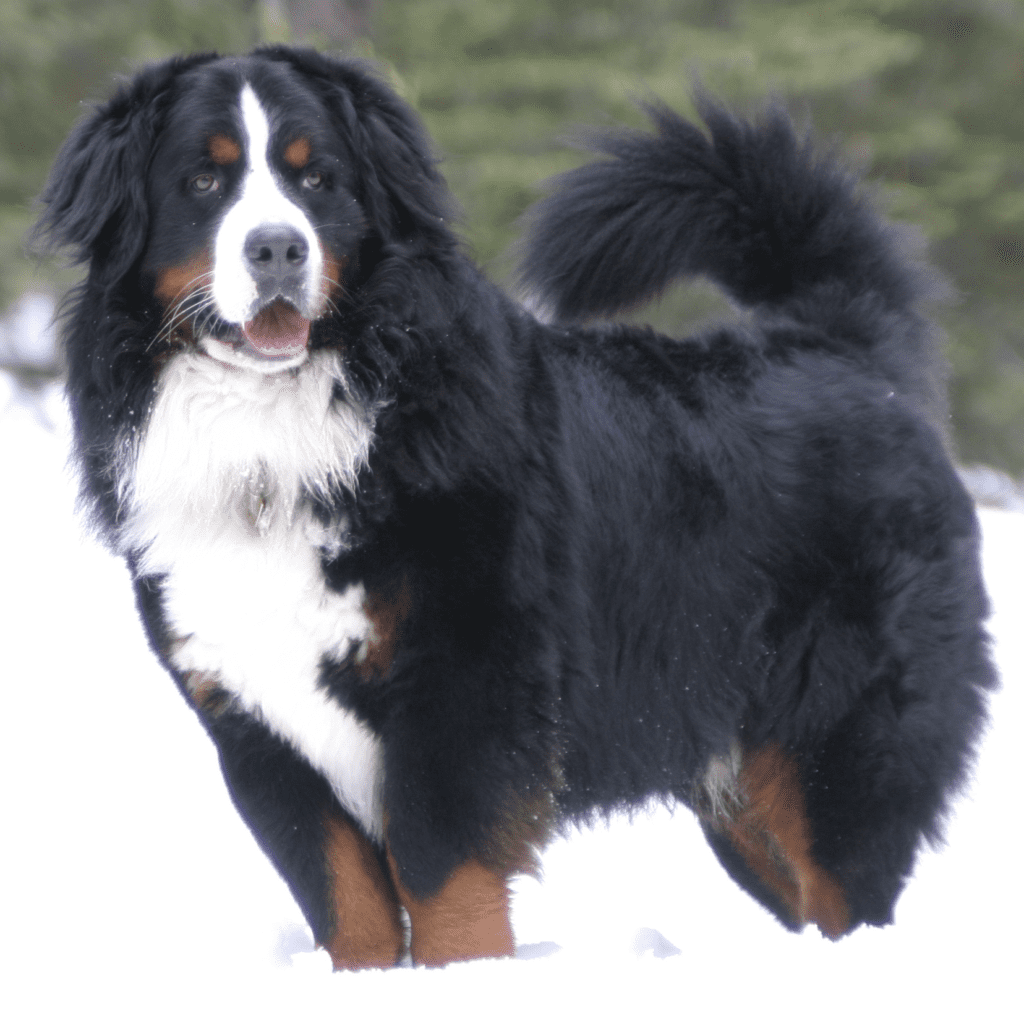
The Language of Bernese Mountain Dogs – Tail Language
Perhaps the most obvious to observe, but also sometimes misconstrued. Just because a dog is wagging its tail doesn’t mean it’s happy. If this is a dog you’re not familiar with, consider the possibility that the tail wag is not signaling for you to pet the dog. Pay attention to the dog’s ears, if they’re down and not perking up the dog may be signaling that he’s not comfortable. Also, pay attention to the rest of the dog’s body for stiffness.
Here are some general tail motions to remember:
A curled tail usually means a relaxed dog. It can also mean confidence or dominance.
A straight, stiff tail means a dog is tracking something closely.A lower held or tucked tail means fear and submission.

Ear Language
Personally, this is my favorite way that Bernese Dogs Talk to us talk to us. Perky ears show us that a dog is very intrigued in what’s to come next and are highly focused. Droopy ears are a sign of submission, while ears pinned back mean the dog is unhappy and uncomfortable. Generally, the more flattened the ears are, the more submissive the dog is being, whereas the perkier the ears, the more interested the dog is.

Eye Language
Bernese Mountain Dogs do so much with their eyes. Eye talk is a close second in my rankings of favorite dog languages. Sad puppy eyes are the most apparent way dogs use their eyes, quite effectively in this case.
A dog may close his or her eyes in pleasure when receiving a particularly enjoyable belly rub or scratching behind the ears.
When you can see the whites of a dog’s eyes, they are on high alert and want space.
An unblinking dog may be showing signs of aggression, but most likely when your dog is staring at you, it’s just to get your attention.
Generally, if you’re making direct eye contact with your dog, he or she will likely hold the contact for a bit but then look away submissively. When avoiding eye contact altogether, your dog is uncomfortable and is again showing signs of submission.

Mouth Language
Does my Bernese Mountain Dog smile? The answer to that question is often yes, so the real question becomes, what does that smile mean? You’ll be able to quickly tell if the smile is a sign of contentedness by seeing ears forward, relaxed eyes and a big open mouth with a floppy tongue.
When dogs bare their teeth, this is a sign of is unhappiness and potentially both fear and aggression.

The Language of Bernese Mountain Dogs – Head Tilt Language
What does it mean when my Bernese Mountain Dog tilts its head?
Dogs tilt their heads because they’re listening more intently. Think of your dog’s ears as an antenna. When something startles them, or they hear a sound they haven’t heard before, they’ll tilt their head to readjust their antenna, their ears, towards the sound. This behavior is inherently built into dogs and happens instinctually.
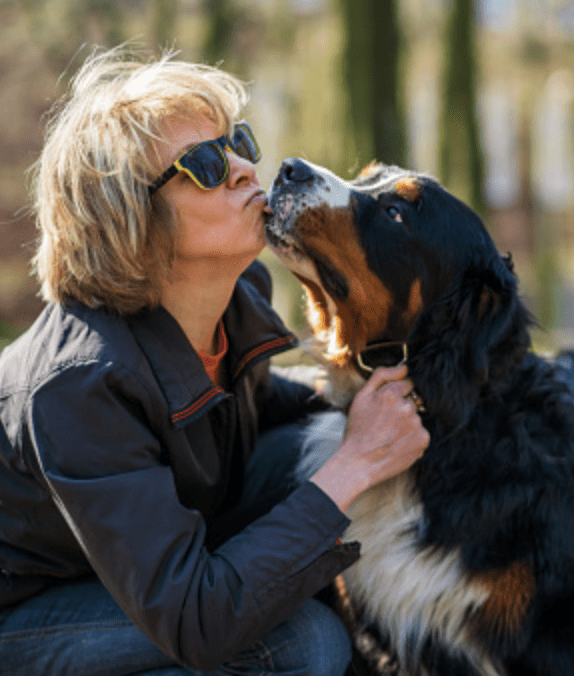
Lick Language
Why does my Bernese Mountain Dog lick me?
Sometimes you taste good. No really, sometimes dogs want to lick the salt off our face. There is a much more scientific reason for this though. Licking is a behavior that dogs have learned since birth. When dogs are newly born puppies, their mother will lick them to stimulate breathing and to clean them off. From an early age, puppies will affectionately lick their mother’s mouth. Going in for a big sloppy kiss on the mouth is often your dog’s way of signaling love and respect (or that they want to clean off your leftover lunch).
More on How Dogs Communicate With Humans >>
More on Bernese Mountain Dogs >>
Bernese Mountain Dog Videos >>

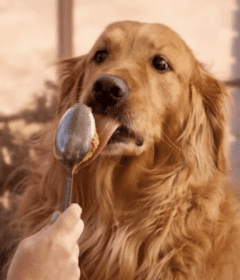

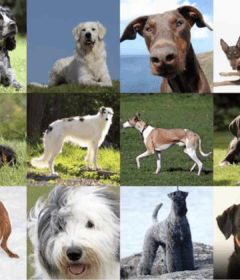
Why do they under an thru our legs several times ?
ow Your Bernese Mountain Dog Communicate With You – Leaning Against You
If your dog is leaning against you, this is your dog’s way of trying to cuddle with you. Unfortunately, he physically can’t hug you, so cuddling against you is the best way to show affection to you.
https://pbonlife.com/bernese-mountain-dogs/bernese-mountain-dog-communicate-with-you/
Some Berners love to give and gets hugs. mine does.